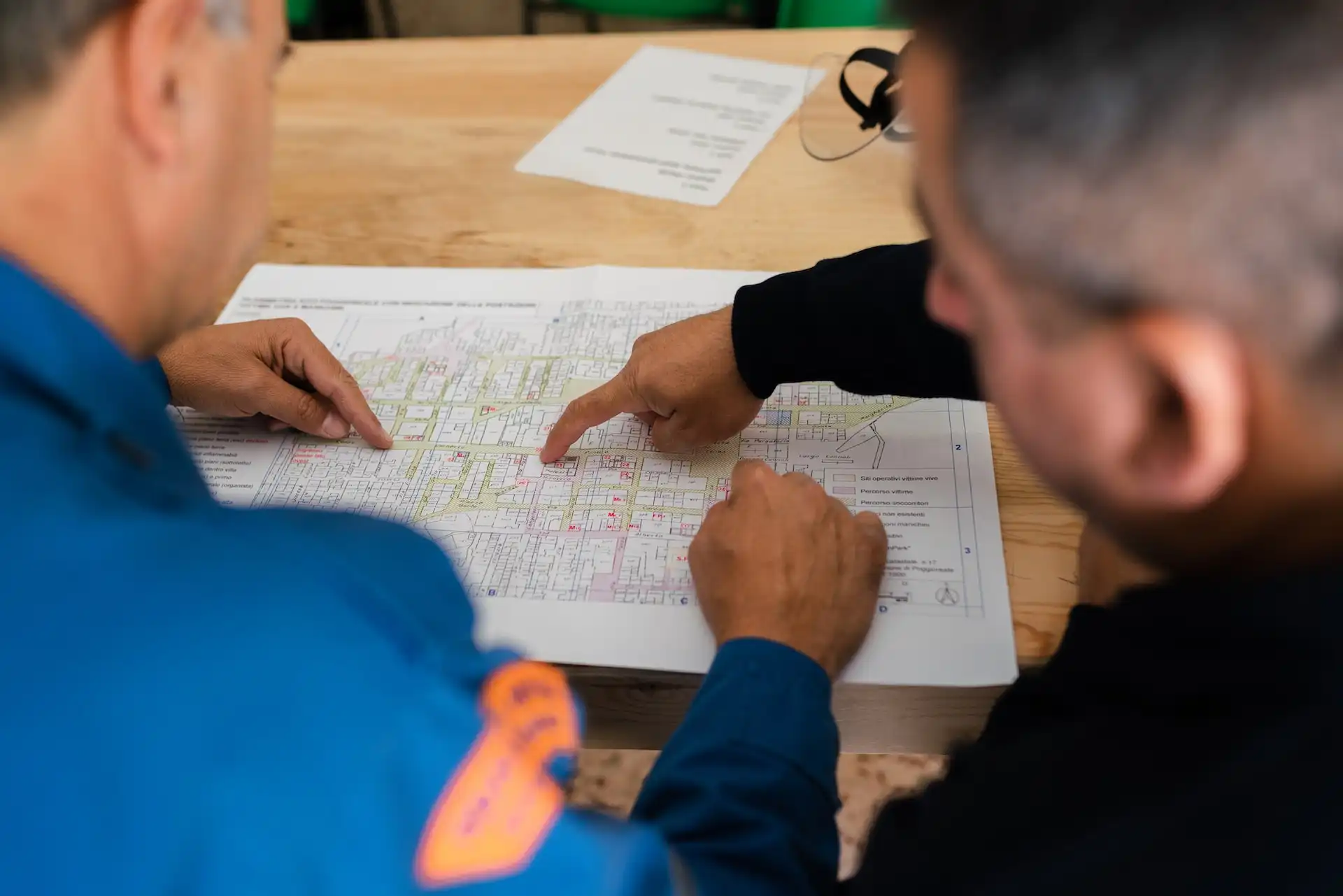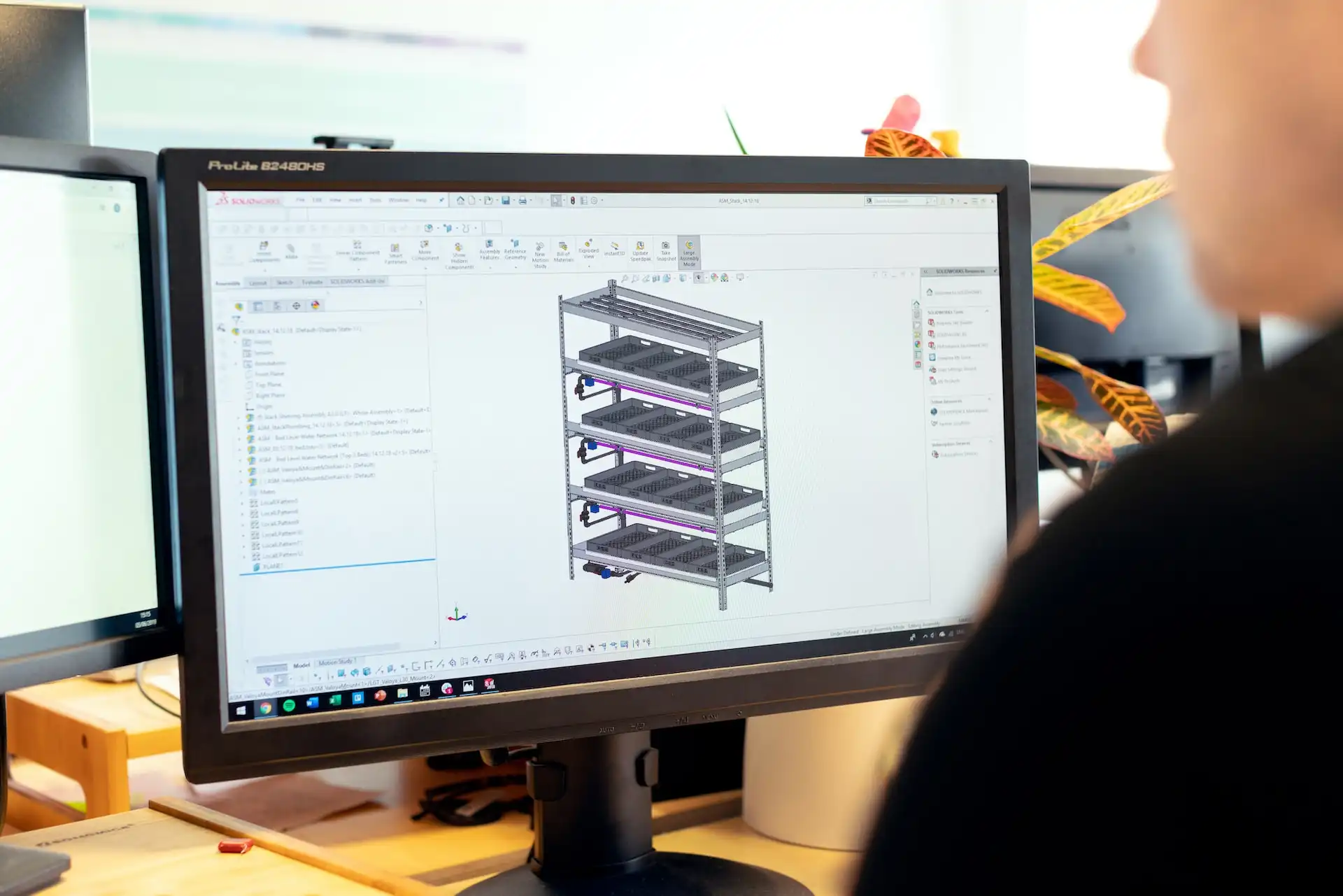Project Management

Engineering Excellence, Built on Decades of Expertise
Nexus Engineering: Your trusted partner, where RPEQ and CPEng-accredited and QBCC Licensed professionals, with a rich history of over 20 years in construction engineering and project management, meticulously craft your journey to construction success.

Navigating Projects with Purpose
Our construction management team leads your project with a clear purpose, ensuring it stays on track, within budget, and aligned with your vision.

Managing Construction, Maximizing Value
We understand your project’s unique requirements, budget constraints, and objectives. Our construction management approach optimizes resources, minimizes waste, and delivers maximum value for your investment.
Project Management
 Project managers hold a significant position as essential stakeholders within construction and design firms, who bring together all the components systematically. Their duty involves ensuring the smooth coordination of each element, thus guaranteeing projects stay on schedule, within the budget, and according to schedule. The construction process can turn into a confusing, frustrating, and chaotic situation if you do not have an experienced project manager to keep things organised and on track.
Project managers hold a significant position as essential stakeholders within construction and design firms, who bring together all the components systematically. Their duty involves ensuring the smooth coordination of each element, thus guaranteeing projects stay on schedule, within the budget, and according to schedule. The construction process can turn into a confusing, frustrating, and chaotic situation if you do not have an experienced project manager to keep things organised and on track.
Who is the Project Manager?
A project manager is a professional responsible for planning, coordinating, and overseeing various aspects of a project. They ensure that the project is executed efficiently, within budget, and according to the specified timelines (construction programme).
In the context of a construction and design firm, a construction manager collaborates closely with architects, engineers, principal contractors, general contractors, subcontractors, and other stakeholders throughout the project. Depending on the scale and nature of the project, their role’s intricacy and scope might change. Overall, these roles are critical for the successful delivery of any construction project.
Difference Between Project Manager and Construction Project Manager
Construction managers and project managers are two professionals who oversee construction projects. Although the roles of these two professionals may overlap on many occasions, they also exhibit distinct characteristics.
Construction Manager:
A construction project manager is a specialist in construction processes and operations. Their role is associated with practical aspects of project execution. They excel in:
- On-Site Management: Construction Managers are typically on-site, overseeing day-to-day construction activities. They ensure that tasks are completed efficiently, safely, and according to the specifications.
- Resource Allocation: Construction Managers are responsible for allocating labour, equipment, and materials as needed. This ensures that the resource allocation is optimised to keep projects on schedule.
- Quality Assurance: Construction Managers focus on maintaining quality standards and ensuring that the work is completed in accordance with the design drawings; and meets regulatory requirements and industry best practices.
- Subcontractor Coordination: Construction Managers liaise with subcontractors and trade specialists, fostering collaboration and adherence to project timelines.
- Safety Compliance: Safety is a paramount concern for Construction Managers, who implement and enforce safety protocols to protect workers and the public and meet regulatory standards.
Project Manager (in Construction)

In a broad sense, a Project Manager is responsible for planning, executing, and closing projects across various industries and sectors. Similarly, project managers in the construction industry have a broader and more strategic view of projects. In construction, project managers oversee the entire process of a new building project, in contrast to construction managers who are responsible only for the construction aspect. They excel in:
- Project Planning: Project Managers are responsible for the overall project plan, including timelines, budgets, and resources. They create a roadmap for the entire project, from inception to practical completion.
- Stakeholder Communication and Coordination: Project Managers serve as the central point of contact for clients and project stakeholders, ensuring clear communication and addressing concerns.
- Risk Management: Project Managers identify and mitigate project risks, ensuring that potential issues are addressed proactively to minimize disruptions.
- Regulatory Compliance: Project Managers navigate complex regulations, environmental considerations, and safety standards that are specific to civil engineering projects.
- Contract Management: Project Managers manage contracts, procurement, and financial aspects of the project, ensuring that budgets are adhered to and contracts are fulfilled.
Key differences
Many aspects of project management and construction management overlap. However, some key differences distinguish the two areas one from another.
- Focus: Construction managers concentrate on the hands-on execution of construction tasks, such as collaboration with contractors and material suppliers, maintaining material inventory, creating schedules for the team members, maintaining cost estimates, and tracking the project’s progress. On the other hand, project managers oversee the project’s strategic and administrative aspects. These include meeting clients and stakeholders, creating project plans and budget estimates, selecting project locations, hiring a team, and many more.
- Location: Construction managers are often on-site, whereas project managers may work on-site and off-site.
- Scope: Construction managers have a narrower focus on construction-specific tasks, while project managers consider the broader project lifecycle.
Project managers take a more holistic approach to overseeing project planning, coordination, and stakeholder communication. For smaller construction projects, project managers often handle both project management and construction management to streamline the process, ensuring that everything runs smoothly.
Skill Set of a Project Manager in Construction

Both construction managers and project managers need a certain set of abilities to carry out their tasks quickly and effectively. Managers’skills are critical when determining project needs, budget estimates, work schedules, and compliance with building and environmental regulations.
These are prerequisites for a qualified project manager.
1. Strategic Planning
Throughout the project lifecycle, there is an inherent risk that things may not go as per the plan. Small changes can easily jeopardise a project. A bigger project can quickly be put in danger by a minor change. Therefore, having an experienced project manager on a team is essential.
Project managers, whether in construction, design, or other fields, break down large projects into smaller manageable tasks. They distribute these tasks among consultants, suppliers, and subcontractors, and then coordinate and integrate the results to ensure the overall project progresses effectively. Project managers establish milestones, allot resources, and chart which are critical when keeping the project on track.
2. Effective Communication
Construction projects are extremely complex and involve multiple stakeholders, including clients, building contractors, subcontractors, structural engineers, other consultants, and suppliers. Project managers leverage their communication abilities to keep all stakeholders informed about the project’s progress, which is critical for the project’s success.
3. Financial Resource Management
Similar to other projects, a building project requires a sound and workable financial strategy. Managing the finances of a project is one of the key challenges for construction stakeholders owing to its complex nature.
Project managers are skilled in resource allocation, tendering projects, cost estimation, and budgeting.
4. Risk Management
Construction projects face a wide range of risks and hazards, such as labour shortages, safety concerns, handling variations and change orders, unknown site conditions, and accidental damage, to name a few.
Risk can be of any extent: some are small while others are huge. Risks pose a danger to a project. To prevent or minimise the negative impact caused by a potentially harmful event, it is essential to have a strategy for mitigating risks. The process of managing potentially damaging situations is referred to as Risk Management.
Project managers minimise project risks by identifying potential issues and devising contingency plans. Construction managers reduce project risks in the field.
5. Leadership and Team Management
Construction managers demonstrate a high level of leadership and team management from the start of a project. They make judgements in the best interests of the project and the project owners.
By ensuring a balance between authority and inspiration, project managers bring leadership into their positions. By using this leadership skill they inspire team members. They encourage, coach, and ensure that everyone gives their best.
6. Problem-Solving
Professionals in the building industry frequently encounter unforeseen situations that demand out-of-box solutions. This is where the problem-solving skills of the project manager come into play. Effective problem-solving managers combine imaginative thinking with powerful analytical abilities.
Project managers are quick thinkers who can address problems when they emerge. They approach issues from different perspectives. They propose unique solutions in an attempt to convert challenges into opportunities.
7. Negotiation
The proficiency of a project manager in negotiation is pivotal to handling different construction-related challenges. Particularly in matters related to contract negotiations, budget distribution, changes to the original scope, gradual expansion of project scope, reduction of risks, and strategic resource management.
Project managers are in the lead during negotiations. A productive workplace is maintained by sophisticated negotiating abilities; that enable them to negotiate and tactfully settle complicated issues.
8. Organization
Construction project management is all about effectively managing multiple tasks, teams, and resources. Organisational skills of construction managers allow them to coordinate multifaceted projects smoothly. They create project schedules and plans that consider the resources and dependencies. With the help of these plans, labour supplies and equipment are managed properly thus reducing resource shortage or wastage.
Roles and Responsibilities of a Project Manager
Construction managers serve as focal points of any construction project. A professional construction project manager is responsible for various roles and responsibilities. Some of the major responsibilities of project managers in the construction industry are highlighted below;
Project Initiation and Planning
A project manager’s responsibilities begin when the project is in the inception stage. In this phase, the project manager coordinates with architects, engineers, and compliance authorities (town planners, certifiers) to develop the project plans and documents. The project manager also reviews the design documents for feasibility, financial viability, and alignment with project goals. Project Managers use their analytical abilities to develop a project plan in line with project goals and objectives.
Resource Allocation
Resource allocation is of paramount importance when it comes to making a project successful. A construction manager manages the construction workers, equipment, construction materials, and time to complete the construction puzzle efficiently.
They decide when each resource should be allocated, ensuring that everything is there when needed. These decisions are reflected in the Construction Programme. The smooth development of the building construction project is ensured by this coordination, which prevents setbacks such as running out of supplies or not having the necessary equipment when they’re needed.
Budget Management

Construction projects are commercial endeavours; staying on the budget is important for all project participants. Budget management is a complex process therefore without the expertise of a project manager, reliable budget estimates cannot be made.
From the beginning through the completion of the project, a project manager monitors the budget. They assess the amount of money required for all expenses, including labour, supplies, and contractors, to mention a few. Therefore, a project’s budget is always under control when a seasoned project manager is in the team.
Quality Control
Quality control in construction is all about making sure that things are built the right way, in compliance with the design drawings and as per the client’s needs and requirements. Construction managers inspect all aspects of work, ensuring that they are completed to the requisite standards.
Project Managers correct any discrepancies before they become evident and pose serious issues. This watchful quality control ensures that the final building is safe, resilient, and exactly as it should be.
Risk Management
Construction risk management involves identifying, assessing, and mitigating potential risks that could impact a construction project. A project manager anticipates potential challenges on a construction site, such as delays in material deliveries or equipment malfunctions, and is prepared with contingency plans when these risks materialize into actual issues.
Construction project managers supervise every phase of the construction including planning, execution, and completion. Due to the inherent complexity of construction projects and their susceptibility to various uncertainties and potential issues, effective risk management is an essential aspect of a Project Manager’s responsibilities.
The major steps involved in project risk management are as follows:
- Identify potential risks
- Access risks
- Quantify risks
- Develop risk-response strategies such as avoidance, mitigation, transfer, and acceptance.
- Create contingency plans
- Monitor and control risks
- Communication and documentation
Project Documentation
Project documentation is the responsibility of the project managers. All pertinent information on risks, plans, choices, and actions taken is recorded and made easily available through proper documentation. Documentation has many proven benefits such as it provides transparency, and accountability, and serves as a reference point for future projects.
Delegate responsibilities and track the progress
Effective project management requires task assignment and progress monitoring. The project manager assigns tasks to each team member. They ensure that everyone knows their role and can work together smoothly. The manager identifies competencies and defines each role clearly. In addition to delegating tasks to team members, a project manager develops key performance indicators (KPIs) for several parts of the project, such as timing, money, quality, and safety. Based on the defined KPIs, the project manager regularly reports to relevant stakeholders.
Tools and Technology Used in Construction Management Processes
Technology forms the backbone of the construction industry. Construction professionals, including project managers, use a variety of software tools to enhance their productivity and accuracy.
Here is a quick overview of the latest technology that construction managers use:
Engineering Project Management Software

Construction managers leverage the latest engineering project management software, such as the Primavera P6 and MS Project for planning, scheduling, collaboration, and document management. They monitor progress, assign tasks, and track deadlines in real time thanks to the powerful capabilities of these software solutions.
Building Information Modeling (BIM)
BIM has revolutionized the building industry. By creating a digital depiction of the project using BIM software, all stakeholders can see the construction in a virtual setting. This technology is invaluable when detecting errors, and clashes, optimizing layouts, and communicating with stakeholders. Thus, using BIM construction managers ensures more effective and error-free construction. More about BIM and what Nexus may offer can be read here.
Artificial Intelligence
Artificial Intelligence is the most recent trend. AI-driven algorithms are used to analyse complex data and extract meaningful conclusions. Project managers use AI for various purposes, such as predicting potential risks, optimizing resource allocation, and forecasting project outcomes. This enables construction project managers to make informed decisions at the appropriate time.
Why Are Construction Managers Essential for any Project?
Project managers are the architects of order in the construction chaos.
Project managers play a crucial role in facilitating informed decisions during the contractor and subcontractor selection process. They review contractor licenses and other credentials to find reliable contractors. Their involvement helps to set realistic expectations regarding the commitments made by builders, and embed those commitments into contracts, thereby proactively addressing the challenges that many individuals currently face in the construction industry, such as cost escalations, significant delays, and heightened frustration.
For your next construction project, you should appoint a project manager for the following reasons:
- Project managers optimize resource usage, minimizing waste and maximizing productivity
- They set realistic schedules, ensuring your project finishes on time
- Project managers keep your finances in check, preventing budget overruns
- They identify and tackle potential issues, averting disruptions
- Project managers ensure everyone stays informed and aligned
- They maintain high-quality standards throughout the project
- Project managers ensure your project follows all necessary regulations
Introducing Nexus Engineering
Having a capable construction project manager in your team is a tactical advantage in this dynamic environment where accuracy is required. If you are looking for a reliable construction management service consultant, Nexus Engineering is the way to go.
In addition to providing construction management services, Nexus Engineering also specializes in structural engineering, roofing, retaining wall designing, home alteration, building information modelling, and many more.
So, whether you are planning to embark on a home renovation project, commercial renovation, or it is a new construction project, Nexus Engineering is one of the best Project Management construction companies near you.
Why Choose Nexus Engineering
At Nexus Engineering, we’re not just project managers; we’re your partners in turning construction dreams into reality.
We distinguish ourselves through a team that integrates expertise in both structural engineering and project management. This strategic advantage positions our company ahead of competitors by providing a broader spectrum of viable solutions that benefit both the project itself and its stakeholders.
Here’s why we stand out as the go-to firm for engineering management excellence:
- Proven Expertise: With a track record of successfully delivering diverse projects, from residential building to commercial building construction projects.
- Tailored Excellence: Our team of experienced project managers craft tailor-made solutions that align perfectly with your unique project requirements.
- Holistic Vision: We see the bigger picture. Nexus Engineering considers every facet, ensuring outcomes are not just comprehensive but harmoniously balanced.
- Innovation: We are always at the forefront of groundbreaking solutions, infusing creativity into every project.
- Collaborative Synergy: We believe in the power of collaboration. We work closely with all stakeholders to ensure projects run smoothly from start to finish.
- Value-Driven: With a focus on value, we offer cost-effective services that prioritize your bottom line.
Nexus Engineering is your ideal construction engineering service consultant. We specialize in modern construction practices and methodologies. Join us in crafting a future of success together.
Contact us to discuss your project and how we can help you at +61 (7) 2113 3626 at any of the following locations we service
- Project Management Brisbane
- Project Management Gold Coast
- Project Management Ipswich
- Project Management Sunshine Coast
Contact
Map
Reach Us
Nexus Engineering
Address: Bldg. 1, L2, Kings Row, 52 McDougall St., Milton QLD 4064
Phone: 07 2113 3626
Email Address: enquiries@nexus-engineering.com.au
Contact Form
Follow Us
Nexus Engineerging © All Rights Reserved. Copyright 2024 | Privacy Policy

